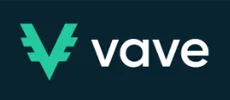 July 29 2025
July 29 2025
Everything we do online, including the gambling websites we visit when trying to unwind and relax, can now be tracked, traced and recorded. These gambling websites offer an unparalleled level of excitement while also making the entire experience incredibly convenient, thanks to how easy they are to access and get started with once a player has verified their identity and deposited their initial funds.
In this article, we'll take a look at the tools and resources available to help players maintain their anonymity when gaming online. This is a trend that's largely been driven by privacy concerns and the rise of cryptocurrencies. We'll do this while paying particular attention to the balance between player privacy and ensuring that players gamble responsibly.
There has been a lot of news in the casino industry recently, and it’s evident that it has become increasingly important to have a greater degree of anonymity when browsing and playing sports games online, as this decreases the chance of your data being misused and shared. Data that’s provided when creating an account can be shared between gambling platforms, payment processors and third-party advertising partners. This data is highly valuable, and just one tick in a consent box can open you up to having your data shared with dozens of so-called partners.
In some countries, access to online gambling platforms is highly restricted or sometimes banned entirely, which can make it almost impossible for online gamblers to have an enjoyable experience. Increasing one's anonymity online can make it easier for players to stay under the radar and decreases their chances of detection – although this doesn't change the legality of what they're doing.
Even if these sports betting platforms aren't illegal or banned, there still may be a social stigma attached to gambling in some countries. Some players may wish to keep their online gambling habits private and away from the prying eyes of their employers, friends and family members, or even their banking provider. This hobby may impact their day-to-day lives and even their ability to be offered credit in the future.
As we touched upon in the previous section, some countries may heavily restrict or even entirely ban access to online sports betting platforms. These laws and regulations differ on a country-by-country basis and are often influenced by the religious and social norms present in those countries. This is why it's much less likely for tourists to find real-world casinos in Muslim-majority countries, for example.
Online sports betting fans can use tools like VPNs and cryptocurrencies to gain access to these platforms and anonymize their behavior by not directly transferring funds out of their bank and into their gambling account.
While this doesn't make their actions legal, and they may still face legal and social pushback for this behavior, using a VPN to mask their location and then using anonymous payment methods, such as cryptocurrencies, can be an effective tactic when trying to bypass geo-restrictions. Players should still ensure that they are fully aware of the law's stance on gambling. This will make it easier for them to understand the potential risks and consequences later on down the line. It can also make it easier for players to make an informed decision.
Now, let's take a look at these anonymity tools in greater detail so we can assess the advantages and drawbacks of each, and help you decide whether they'd be something that could be beneficial:
VPNs encrypt internet traffic and route it through a server in another location. This can make it easier for users to mask their IP address. This masking allows users to access geo-restricted sports betting platforms, shield their data on public Wi-Fi and maintain more privacy from internet providers and government agencies.
Players should explore VPNs that feature no-log policies (to make it harder for governments to view historic data), AES-256 encryption (to protect personal and financial data), kill switches (to cut access in case of emergency) and servers in betting-friendly countries like the Netherlands or Malta (to ensure that players have as much access as possible to the global betting scene).
Cryptocurrency transactions are anonymous and therefore don’t require personal information. They offer fast, low-fee transactions that are highly secure and logged on a decentralized ledger, known as the blockchain. Players will need to have a wallet for them to send their purchased funds to, but once this is done, they'll be able to search online for the best no KYC betting sites and then get started.
Bitcoin is the most widely accepted option when looking at the many different cryptocurrencies available, although Ethereum and Monero are also worth exploring as they offer enhanced privacy due to untraceable transactions and a strong reputation for user privacy.
Using Tor browser that's specifically designed for user privacy is certainly worth considering. It works by sending traffic through multiple nodes. This can make it highly anonymous and difficult for anybody else to trace its origins, although it can be done through laborious means. The main upside is that users can take advantage of the increased privacy protection, which is particularly beneficial for anyone wanting to limit their exposure and remain more anonymous online.
However, this comes at the cost of speed, and for users with already subpar internet speeds, this can make the entire process unappealing. There is also a risk that some betting sites may not be compatible with users using Tor, as the exit nodes may result in them being blocked. It's worth noting that Tor is less practical for sports betting but can be a useful fallback for highly restrictive environments.
Sports betting fans wanting to increase their anonymity online and reduce the chances of them being a victim of identity theft and fraud should look into using VPNs, cryptocurrencies and privacy-first browsers. It's worth reiterating that for users with local restrictions in place, they still run the risk of being punished if they're caught trying to circumvent any bans. These tools should only be used by those who fully accept the potential consequences.


Curacao-License
 There is a No Deposit Bonus available: 15 Free Spins
There is a No Deposit Bonus available: 15 Free Spins


Curacao-License


Curacao-License


Curacao-License
 There is a No Deposit Bonus available: $7 Free Cash
There is a No Deposit Bonus available: $7 Free Cash


Curacao-License


Curacao-License
 There is a No Deposit Bonus available:
25 Free Spins (Wager Free)
There is a No Deposit Bonus available:
25 Free Spins (Wager Free)




Curacao-License



Curacao-License
 There is a No Deposit Bonus available: 30 Free Spins
There is a No Deposit Bonus available: 30 Free Spins


Curacao-License





Curacao-License
 There is a No Deposit Bonus available: 50 Free Spins
There is a No Deposit Bonus available: 50 Free Spins


Curacao-License


Curacao-License


Curacao-License